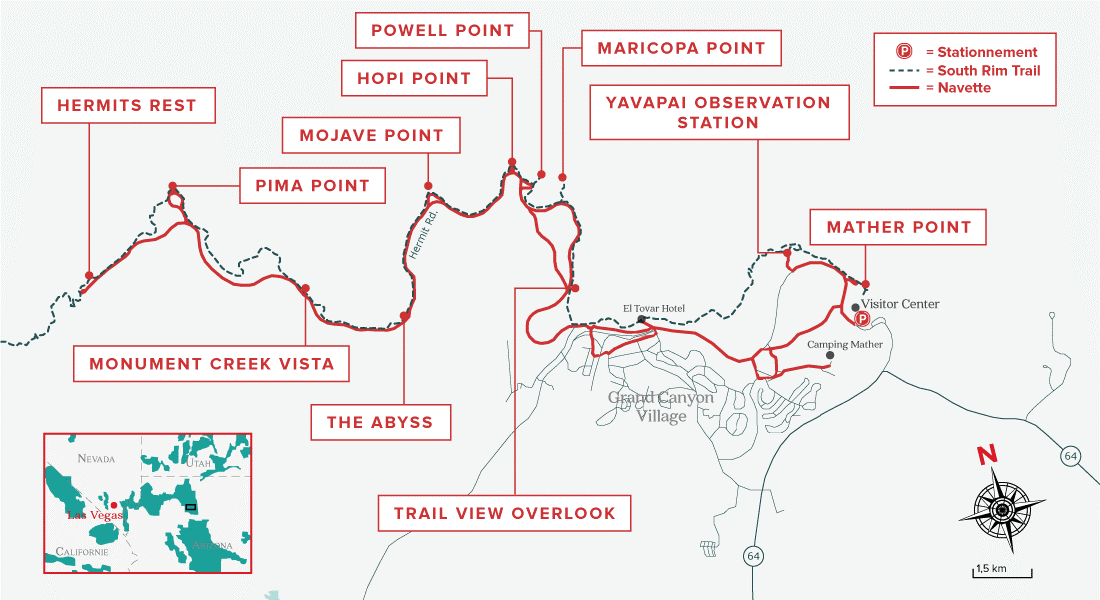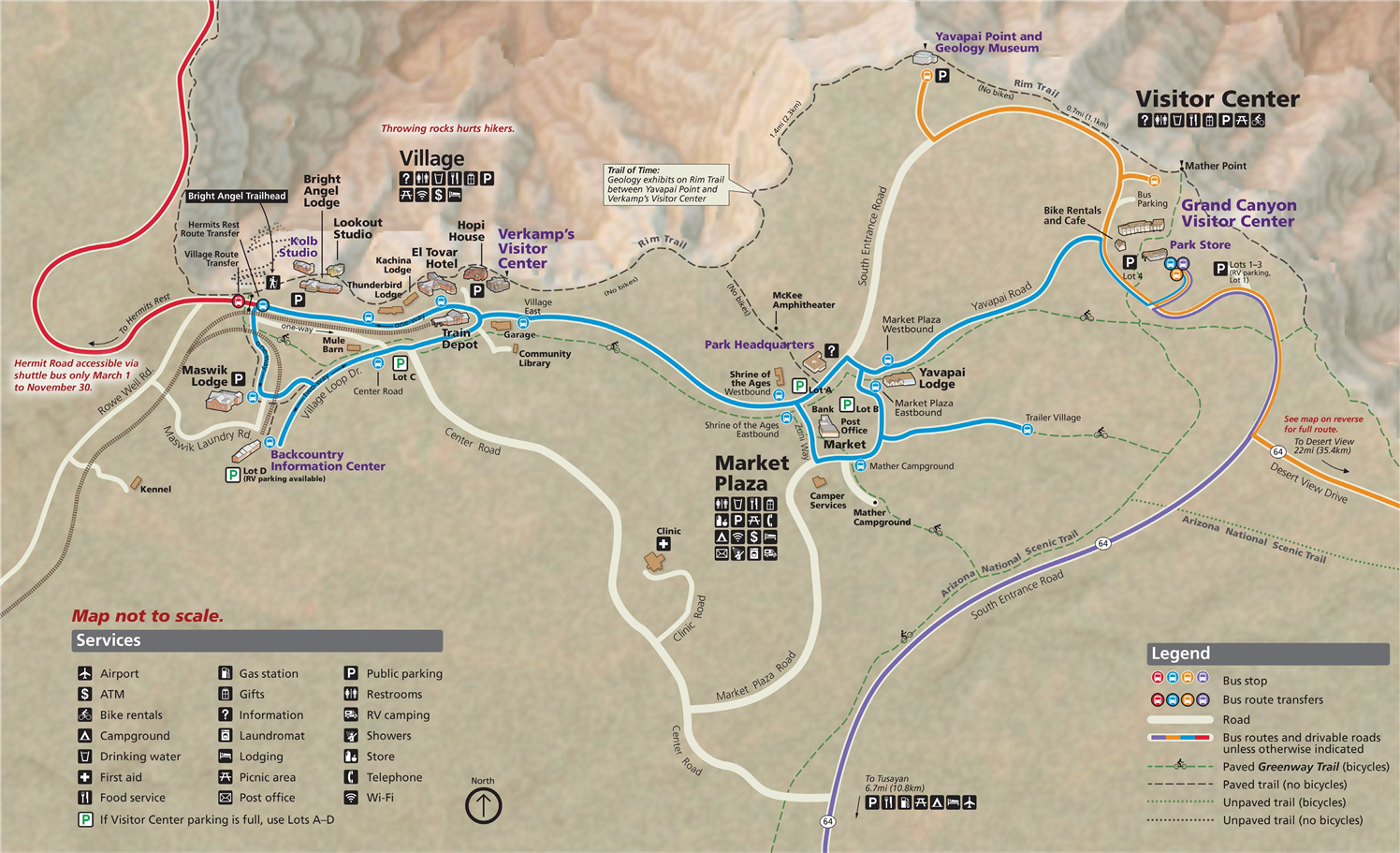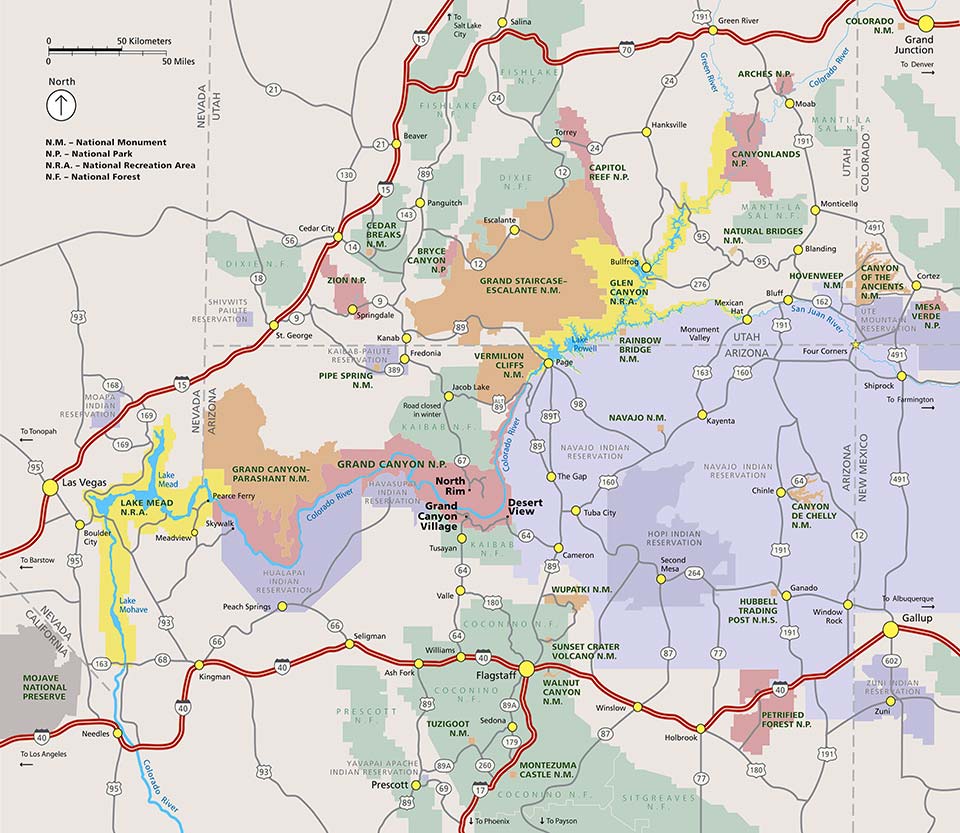Navigating the Grand Canyon’s Majesty: A Guide to the South Rim Trail Map
Related Articles: Navigating the Grand Canyon’s Majesty: A Guide to the South Rim Trail Map
Introduction
With enthusiasm, let’s navigate through the intriguing topic related to Navigating the Grand Canyon’s Majesty: A Guide to the South Rim Trail Map. Let’s weave interesting information and offer fresh perspectives to the readers.
Table of Content
Navigating the Grand Canyon’s Majesty: A Guide to the South Rim Trail Map

The Grand Canyon, a UNESCO World Heritage Site, is a natural wonder that captivates millions of visitors each year. Its sheer scale and breathtaking beauty are a testament to the power of nature, with the South Rim offering the most accessible and popular viewpoint. To fully appreciate this awe-inspiring landscape, understanding the South Rim Trail map is essential.
A Visual Guide to Exploration
The South Rim Trail map is more than just a navigational tool; it’s a key to unlocking the diverse experiences the Grand Canyon offers. It provides a comprehensive overview of the South Rim’s trails, viewpoints, facilities, and even historical landmarks. This detailed map is available in various formats, including printed brochures, park service websites, and mobile apps.
Understanding the Map’s Key Features
The South Rim Trail map is designed to be user-friendly, incorporating various symbols and colors to represent different trail types, difficulty levels, and points of interest.
- Trails: The map clearly outlines the various trails, differentiating between paved, unpaved, and backcountry trails. This allows hikers to choose trails suitable for their fitness level and desired experience.
- Viewpoints: Each viewpoint is marked on the map, often with a brief description of the scenic features visible from that location. From iconic vistas like Mather Point and Yavapai Point to lesser-known gems like Hopi Point, the map helps visitors plan their sightseeing route.
- Facilities: The map highlights essential facilities like visitor centers, restrooms, water fountains, and picnic areas. This information ensures visitors can comfortably navigate the park and access necessary amenities.
- Historical Sites: The map also incorporates historical landmarks, including remnants of Native American settlements, early explorer routes, and remnants of the Grand Canyon Railway. These features provide a deeper understanding of the region’s rich history and cultural significance.
Benefits of Using the South Rim Trail Map
The South Rim Trail map offers numerous benefits for visitors, empowering them to explore the Grand Canyon efficiently and safely.
- Planning Efficient Routes: The map allows visitors to plan their sightseeing and hiking routes based on their interests and time constraints. It helps them prioritize key viewpoints, identify trails suitable for their fitness level, and create a personalized itinerary.
- Avoiding Getting Lost: The map serves as a reliable guide, helping visitors navigate the vast park and avoid getting lost. It provides clear markings, trail distances, and directional information, ensuring a safe and enjoyable experience.
- Discovering Hidden Gems: The map highlights lesser-known trails and viewpoints, encouraging visitors to explore beyond the most popular destinations. It allows them to uncover hidden gems and experience the Grand Canyon’s diverse landscapes.
- Respecting the Environment: The map emphasizes the importance of staying on designated trails and respecting the delicate ecosystem of the Grand Canyon. By following the marked paths, visitors minimize their impact on the natural environment.
FAQs Regarding the South Rim Trail Map
Q: Where can I obtain a South Rim Trail map?
A: The South Rim Trail map is available at the Grand Canyon Visitor Center, park lodges, and various retailers within the park. Additionally, a digital version of the map can be accessed on the National Park Service website.
Q: What is the best time of year to visit the South Rim?
A: The South Rim is accessible year-round, but the best time to visit is during spring (April-May) and fall (September-October) when temperatures are mild and crowds are smaller.
Q: Are there any restrictions on trail use?
A: Some trails may have restrictions based on weather conditions, permits, or closures. It’s crucial to check with the park service for the latest information before embarking on any trail.
Q: How do I stay safe while hiking in the Grand Canyon?
A: Always be prepared for changing weather conditions, carry sufficient water, and inform someone of your hiking plans. Avoid hiking alone and be aware of potential hazards such as wildlife encounters and steep drop-offs.
Tips for Using the South Rim Trail Map
- Study the Map Before Your Trip: Familiarize yourself with the layout of the South Rim and identify trails and viewpoints that align with your interests.
- Carry a Printed Map: While digital maps are convenient, having a printed copy ensures you can access it even when there is no internet connectivity.
- Use the Map in Conjunction with Other Resources: Combine the map with park service brochures, visitor guides, and online resources to enhance your understanding of the Grand Canyon’s features and history.
- Be Mindful of Trail Conditions: Always check for any trail closures or restrictions before embarking on a hike.
Conclusion
The South Rim Trail map is an indispensable tool for navigating the Grand Canyon’s vast and awe-inspiring landscape. By understanding its features and utilizing it effectively, visitors can plan efficient routes, discover hidden gems, and experience the full splendor of this natural wonder.








Closure
Thus, we hope this article has provided valuable insights into Navigating the Grand Canyon’s Majesty: A Guide to the South Rim Trail Map. We thank you for taking the time to read this article. See you in our next article!